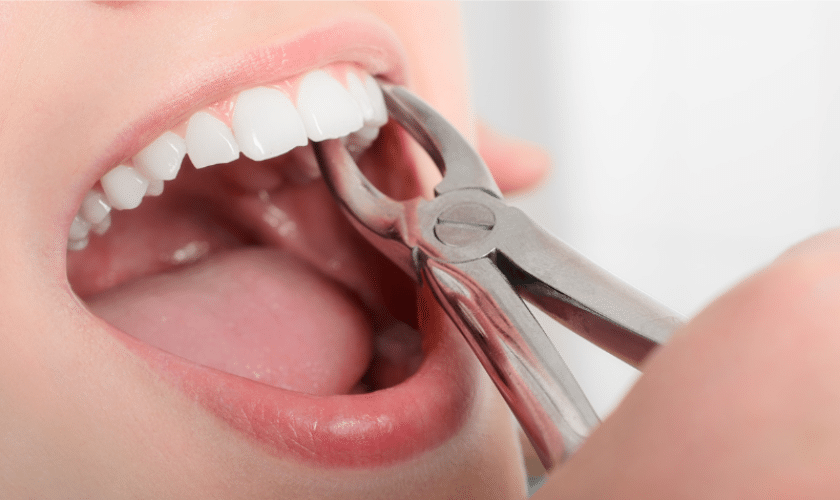
Maintaining a radiant smile involves more than just regular brushing and flossing. Sometimes, despite our best efforts, tooth extraction becomes necessary due to various reasons. However, understanding these reasons and taking preventive measures can often save you from the discomfort and inconvenience of losing a tooth. In this article, we delve into the top reasons for tooth extraction and provide practical tips on how to prevent them, ensuring your smile remains bright and intact.
Understanding Tooth Extraction
Understanding tooth extraction is crucial for maintaining optimal oral health. It’s a dental procedure that involves removing a tooth from its socket in the jawbone. While it may seem daunting, it’s often necessary to prevent further complications and preserve overall oral health.
Common Reasons for Tooth Extraction
There are several common reasons why a dentist might recommend tooth extraction. Here are some of the primary ones:
Tooth Decay: A Silent Threat
Tooth decay, also known as cavities or dental caries, remains one of the leading causes of tooth extraction worldwide. It occurs when bacteria in the mouth produce acids that erode the enamel, leading to the formation of cavities. If left untreated, decay can progress to infect the pulp and root canal, necessitating extraction.
Preventing Tooth Decay:
- Maintain Proper Oral Hygiene: Brushing twice daily with fluoride toothpaste and flossing regularly help remove plaque and prevent decay.
- Limit Sugary and Acidic Foods: Sugary and acidic foods fuel bacterial growth, increasing the risk of decay. Limit consumption and rinse your mouth after indulging.
- Regular Dental Check-ups: Routine dental visits enable early detection and treatment of cavities before they escalate into more severe issues.
Gum Disease: The Hidden Menace
Gum disease, or periodontal disease, affects the tissues surrounding the teeth and is a major cause of tooth loss in adults. It starts with gingivitis, characterized by swollen and bleeding gums, and progresses to periodontitis, causing bone and tooth loss if left unchecked.
Preventing Gum Disease:
- Effective Oral Hygiene: Brushing and flossing not only prevent tooth decay but also remove plaque and bacteria responsible for gum disease.
- Regular Dental Cleanings: Professional cleanings every six months remove tartar buildup and detect early signs of gum disease.
- Healthy Lifestyle Habits: Avoid smoking, maintain a balanced diet, and manage stress to reduce the risk of gum disease.
Trauma and Injury: Accidents Happen
Trauma resulting from accidents or sports injuries can lead to cracked, fractured, or dislodged teeth, necessitating extraction. While some injuries are unavoidable, preventive measures can minimize the risk of dental trauma.
Preventing Dental Trauma and Injury:
- Wear Protective Gear: Use mouthguards during sports activities to cushion impacts and protect teeth from injury.
- Avoid Risky Behaviors: Steer clear of activities that increase the likelihood of accidents, such as biting hard objects or opening packages with teeth.
- Regular Dental Check-ups: Routine visits allow your dentist to assess the condition of your teeth and recommend preventive measures.
Nature’s Quirk: Impacted Wisdom Teeth
Impacted wisdom teeth, or third molars, often lack sufficient space to erupt properly, leading to various issues such as crowding, pain, and infection. Extraction may be necessary to prevent complications associated with impacted wisdom teeth.
Preventing Impacted Wisdom Teeth:
- Early Evaluation: Regular dental check-ups include assessments of wisdom teeth development. Early detection allows for proactive management.
- Consider Prophylactic Extraction: In some cases, proactive removal of wisdom teeth before they cause problems may be recommended by your dentist.
- Maintain Optimal Oral Hygiene: Good oral hygiene reduces the risk of infection and inflammation around impacted wisdom teeth.
Preventing tooth extraction involves proactive measures to maintain optimal oral health and address potential risk factors. By prioritizing good oral hygiene, regular dental visits, and adopting healthy lifestyle habits, you can significantly reduce the likelihood of needing tooth extraction and enjoy a lifetime of healthy smiles. For personalized advice and dental care, schedule an appointment with a trusted Los Angeles dentist who can help you maintain optimal oral health and preserve your natural teeth for years to come.
